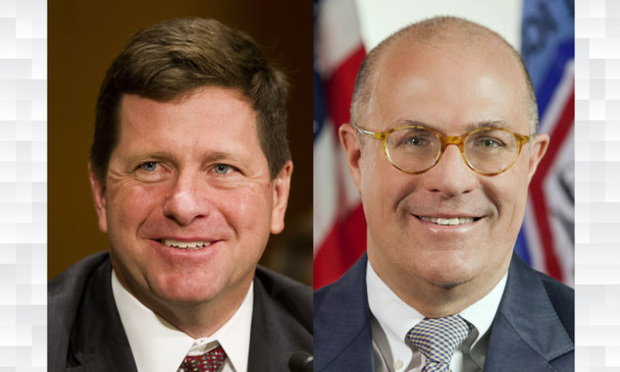
Why the SEC & CFTC Senate Hearing Is Bullish for Crypto (Especially LTC, IOTA, XLM, XRB, & QRL)

On February 6, 2018 at 10AM, in the Dirksen Senate Office Building, the United States Senate held a hearing on Bitcoin (BTC), cryptocurrency, and government’s role in oversight. Investors and traders had long awaited the hearing. Some had fears that the US government, led by President Donald Trump and Attorney General Jeff Sessions, would crack down on the cryptocurrency sector with a heavy regulatory hand. But the hearing was instead measured and optimistic, giving the crypto community more hope and joy than expected.
The main participants who testified to the Senate Banking Committee were the Securities and Exchange Commission (SEC) Chairman Jay Clayton and the Commodity Futures Trading Commission (CFTC) Chairman Christopher Giancarlo. Clayton was appointed by Trump in January 2017; Giancarlo was nominated as Commissioner by Obama in 2013. Both had storied careers in finance and the private sector. The Senators who seemed the most interested and asked the most relevant questions were Elizabeth Warren (D-MA) and Mark Warner (D-VA).
Some parts of the hearing could be construed as bearish for crypto. In particular focus were initial coin offerings (ICOs) and federal securities laws. Warren pressed hard and stated that many ICOs are Ponzi schemes and expressed concern for protecting investors from deceptive and misleading advertising and outright fraud. Clayton replied that no company has registered their ICO as required under securities laws and that the SEC was watching many ICOs. He reiterated that the SEC would continue to regulate all ICOs as securities and enforce existing laws. As ICOs make up a large part of the crypto space and many ICOs have operated in violation of securities laws, the hearing’s focus on the legality of ICOs may be bearish for those respective ICOs.
However, the overall sentiment was bullish. Clayton proclaimed support for blockchain technology, hoping that people will pursue its potential. After Senator Tom Cotton (R-AK) asked about the potential of distributed networks, Giancarlo responded optimistically, stating: “It’s important to remember that if there were no Bitcoin, there would be no distributed ledger technology […] We owe it to this new generation to respect their enthusiasm for virtual currencies, with a thoughtful and balance response, and not a dismissive one.” He also touted the transparency and regulatory benefits of blockchain, adding that it would have helped regulators realize the risks of mortgage-related derivatives before the global financial crisis. Then Giancarlo mentioned that his thirty-year-old niece “HODLs” BTC, as an example of honest investors who should be supported by the CFTC’s regulatory framework. Warner sounded even more bullish on crypto. He compared crypto to cell phones and wireless communication, as transformational tech that would change the world. Finally, he predicted a market capitalization of $20 trillion by 2020.
The crypto community largely ignored the ICO concerns and focused on Giancarlo’s and Warner’s statements. On the r/Bitcoin and r/Cryptocurrency subreddits, people made memes praising Giancarlo and his niece as heroes. Investors also rejoiced at the light-touch regulatory attitude, and the prices of BTC and other cryptos bounced sharply from 3-month lows. After the hearing, Giancarlo gained 14 times more Twitter followers and thanked his new fans.
Going forward, investors would be wise to avoid ICOs and platforms that enable ICOs, as they might be caught up in fraud and unregistered securities cases. That includes popular cryptos like Ethereum (ETH) and NEO (NEO). But investors should seek out coins that promise a practical vision of high-tech change. These include portfolio staples like BTC, Litecoin (LTC), IOTA, Stellar (XLM), Nano (XRB), Quantum Resistant Ledger (QRL), and more. The US government likes innovation perhaps more than any other, and will help crypto innovate into the future.
The author holds long positions in BTC and IOTA.